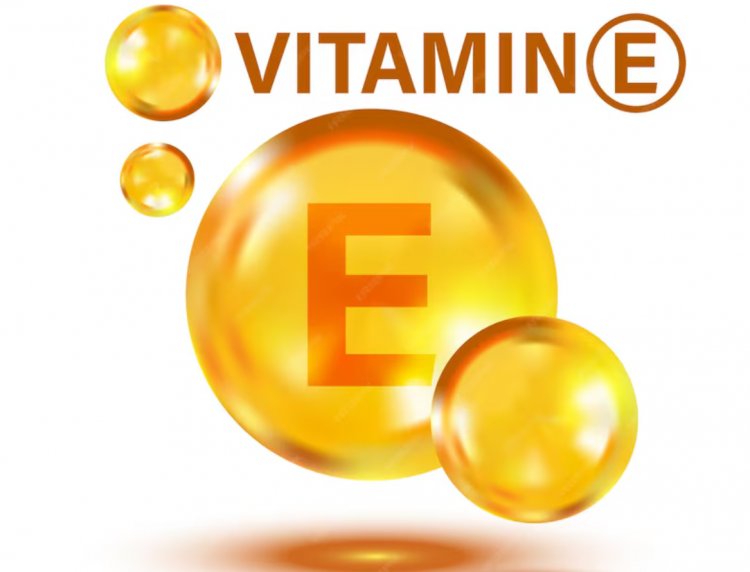Fueling Immunity: Vitamin E's Boost for Your Defense System
Vitamin E, a fat-soluble antioxidant, plays a pivotal role in maintaining optimal health. This detailed article delves deeply into the multifaceted aspects of Vitamin E, including its biological functions, sources, recommended intake, deficiency risks, and potential health benefits

Understanding Vitamin E
Vitamin E encompasses a group of compounds known as tocopherols and tocotrienols, with alpha-tocopherol being the most biologically active form in humans. As an antioxidant, Vitamin E protects cells from oxidative stress caused by free radicals, which are natural byproducts of metabolism and environmental factors like pollution and UV radiation. By neutralizing free radicals, Vitamin E helps prevent oxidative damage to cellular structures, including lipids, proteins, and DNA.
Benefits of Vitamin E
Antioxidant Protection
Vitamin E's primary role is to neutralize free radicals, thereby reducing oxidative damage and inflammation throughout the body. This action is critical for maintaining cellular integrity and mitigating the risk of chronic diseases such as cardiovascular diseases, cancer, and neurodegenerative disorders.
Skin Health
Vitamin E is widely recognized for its benefits to skin health. It promotes skin hydration, elasticity, and repair, making it a common ingredient in skincare products. Vitamin E's antioxidant properties also protect against UV-induced damage and may help alleviate symptoms of inflammatory skin conditions like eczema and psoriasis.
Immune Function
Adequate Vitamin E intake supports immune function by enhancing the activity of immune cells, such as T cells and natural killer cells. This bolstered immune response helps the body defend against infections and illnesses.
Cardiovascular Health
Studies suggest that Vitamin E may help maintain cardiovascular health by preventing the oxidation of LDL cholesterol, which reduces the formation of arterial plaques and improves blood vessel function. It may also have vasodilatory effects, promoting healthy circulation.
Eye Health
Vitamin E, particularly in combination with other antioxidants like Vitamin C and beta-carotene, supports eye health by protecting the retina from oxidative damage. This protection may reduce the risk of age-related macular degeneration and cataracts.
Cognitive Function
Preliminary research indicates that Vitamin E may play a role in preserving cognitive function and reducing the risk of cognitive decline in older adults. Its antioxidant properties help mitigate oxidative stress in the brain, which is linked to cognitive impairment.
Food Sources of Vitamin E
Vitamin E is naturally abundant in several foods:
- Vegetable Oils: Sunflower, safflower, wheat germ, and olive oils are excellent sources of Vitamin E, particularly alpha-tocopherol.
- Nuts and Seeds: Almonds, hazelnuts, sunflower seeds, and peanuts are rich in Vitamin E and also provide healthy fats, fiber, and other nutrients.
- Green Leafy Vegetables: Spinach, broccoli, and kale contain Vitamin E, albeit in smaller amounts compared to oils and nuts.
- Fortified Foods: Some breakfast cereals, margarines, and other processed foods are fortified with Vitamin E to enhance nutritional content.
Recommended Intake
The recommended dietary allowance (RDA) for Vitamin E varies by age and gender:
- Adults: 15 mg (22.4 IU) of alpha-tocopherol per day
- Pregnant women: 15 mg (22.4 IU) per day
- Breastfeeding women: 19 mg (28.5 IU) per day
It's important to note that these recommendations are for alpha-tocopherol specifically, as it is the form of Vitamin E most commonly found in supplements and fortified foods.
Health Effects of Deficiency and Excess
Deficiency
While Vitamin E deficiency is uncommon, it can lead to neurological problems, muscle weakness, impaired vision, and compromised immune function. Conditions that may increase the risk of deficiency include fat malabsorption disorders, certain genetic disorders, and diets low in fat and Vitamin E-rich foods.
Excess
Consuming high doses of Vitamin E supplements (over 1,000 mg per day) may interfere with blood clotting mechanisms, potentially increasing the risk of hemorrhagic stroke. However, adverse effects from dietary intake of Vitamin E-rich foods are rare.
Vitamin E is an essential nutrient renowned for its antioxidant properties and diverse health benefits. Incorporating Vitamin E-rich foods into your diet, such as nuts, seeds, vegetable oils, and green leafy vegetables, can contribute significantly to overall health and well-being. While supplementation may be necessary in specific cases, especially to address deficiencies, a balanced diet remains the cornerstone for ensuring adequate intake of this vital nutrient. By understanding the roles and sources of Vitamin E, individuals can make informed choices to support their health and longevity.
Disclaimer
The information provided in this article is for educational purposes only and should not be considered medical advice. If you have any health concerns or are experiencing symptoms, it is important to consult with a healthcare professional, such as a doctor or clinic, for proper diagnosis and treatment. Always seek the advice of your doctor or other qualified health provider with any questions you may have regarding a medical condition. Do not disregard professional medical advice or delay in seeking it because of something you have read in this article.
Hashtags
#VitaminE #HealthBenefits #Antioxidants #SkinHealth #ImmuneSupport #CardiovascularHealth #EyeHealth #CognitiveFunction #Nutrition #HealthyLiving
What's Your Reaction?





















